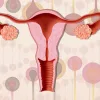Can PCOD Affect the Chances of Getting Pregnant?
Polycystic Ovary Syndrome (PCOS) is a common hormonal disorder among women of reproductive age, affecting around 1 in 10 women in India. This condition disrupts the normal menstrual cycle and the balance of hormones, leading to a range of symptoms that can impact fertility and overall health. Understanding the potential effects of PCOS on fertility is crucial for women who are trying to conceive, as well as for those seeking to manage their reproductive health effectively.
Understanding PCOS and Fertility
PCOS is characterized by hormonal imbalances, irregular menstrual cycles, and the presence of small cysts on the ovaries. These hormonal disturbances can lead to challenges in ovulation, where the release of eggs from the ovaries may be irregular or absent. As a result, women with PCOS may experience difficulties in getting pregnant. Additionally, PCOS is often associated with insulin resistance, obesity, and elevated levels of androgens (male hormones), all of which can further impact fertility.
Impact on Menstrual Cycle
One of the primary ways in which PCOS affects fertility is through irregular or absent ovulation. Without regular ovulation, the chances of conceiving naturally are significantly reduced. Women with PCOS may have infrequent periods or prolonged cycles, making it difficult to predict the fertile window and time intercourse effectively.
Hormonal Imbalances
The hormonal imbalances associated with PCOS can disrupt the delicate interplay of reproductive hormones necessary for ovulation and pregnancy. Elevated levels of androgens can interfere with the development and release of eggs, while imbalances in estrogen and progesterone can affect the uterine lining, reducing the likelihood of successful implantation and pregnancy.
Other Factors
Aside from menstrual irregularities and hormonal imbalances, PCOS can also contribute to other factors that affect fertility, such as obesity and insulin resistance. These conditions can further complicate the reproductive process and increase the risk of pregnancy complications.
Managing PCOS and Fertility
While PCOS can present challenges to fertility, it is essential to note that many women with this condition can still conceive and carry a healthy pregnancy with the right approach to management. Taking proactive steps to address the underlying hormonal imbalances, improve overall health, and optimize fertility can significantly enhance the chances of getting pregnant for women with PCOS.
Lifestyle Modifications
Healthy lifestyle choices play a crucial role in managing PCOS and improving fertility. Maintaining a balanced diet, engaging in regular physical activity, managing stress, and achieving a healthy weight can help regulate hormones, enhance ovulation, and improve overall reproductive health.
Medical Interventions
For women with PCOS who are struggling to conceive, various medical interventions may be recommended. These can include ovulation induction with medications, such as clomiphene citrate or letrozole, to stimulate egg production. In some cases, assisted reproductive technologies like in vitro fertilization (IVF) may be considered.
Holistic Approach
A holistic approach to managing PCOS and fertility involves addressing not only the physical aspects of the condition but also the emotional and psychological impacts. Support from healthcare providers, mental health professionals, and fertility specialists can help women navigate the complexities of PCOS and fertility challenges.
Introducing Fitpaa – Empowering Women with PCOS
At Fitpaa, we understand the unique challenges that women with PCOS face when it comes to fertility and overall health. Our purpose is to empower individuals to achieve their health and fitness goals, and we are committed to supporting women with PCOS on their journey towards improved reproductive health.
Personalized Metabolism Assessment
Fitpaa’s AI-driven Metabolism Monitoring Technology offers a comprehensive assessment of metabolic function, providing valuable insights into how PCOS may be impacting overall health and fertility. By understanding individual metabolic profiles, women with PCOS can make informed decisions about lifestyle modifications and fertility management.
Tailored Fitpaa Capsule
Through personalized Fitpaa Capsules, our expert team of healthcare professionals, including nutritionists and doctors, creates customized plans to address the specific needs of women with PCOS. These capsules encompass medical therapy, exercise therapy, nutrition therapy, and cognitive behavioral therapy, all tailored to optimize metabolism and support fertility goals.
Real-Time Guidance and Support
Fitpaa’s innovative Real-Time Guidance technology incorporates habit-building strategies and cognitive behavioral therapy principles to provide continuous support and motivation for women with PCOS. By integrating lifestyle modifications, activity tracking, and personalized coaching, Fitpaa ensures that individuals stay on track towards their fertility and health goals.
Join the Fitpaa Community
If you are a woman with PCOS who is navigating the complexities of fertility and seeking comprehensive support for managing your health, Fitpaa is here for you. Our mission is to help you achieve your health and fitness goals, including enhancing fertility and reproductive wellness, with guaranteed results.
Download the Fitpaa App
To embark on your journey towards improved fertility and overall well-being, download the Fitpaa app today. With a personalized approach to PCOS management and fertility support, Fitpaa is dedicated to empowering women to take control of their reproductive health and achieve their dreams of starting a family.
In conclusion, while PCOS can present challenges to fertility, it is important to recognize that proactive management and personalized support can make a significant difference in improving reproductive health. By leveraging innovative technologies and comprehensive care, such as those offered by Fitpaa, women with PCOS can access the tools and resources needed to enhance their chances of getting pregnant and embracing a healthier, more fulfilling life.









